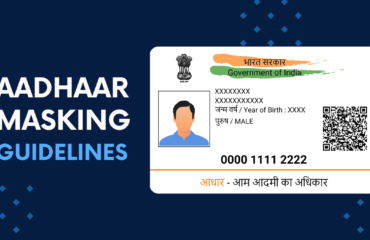In India, labour laws are essential for defending the rights and interests of workers nationwide. These regulations aim to protect workers from exploitation, ensure fair treatment, and secure working conditions. We shall examine the foundational elements of Indian labour laws in this blog article, including its history, current reforms, significant acts, and commonly asked questions.
What do India’s Labour Laws Entail?
In India, there exist laws governing the terms and conditions of employment for workers in various industries. These laws address issues including pay, working conditions, security, and social security benefits. They are essential for preserving a safe working environment and advancing employee welfare.
In India, labour laws are essential for defending the rights and interests of workers nationwide. These regulations aim to protect workers from exploitation, ensure fair treatment, and secure working conditions. We shall examine the foundational elements of Indian labour laws in this blog article, including its history, current reforms, significant acts, and commonly asked questions.
History of Indian Labour Laws
Indian labour laws have a long history that dates back to the early 20th century. The Trade Unions Act, which was passed in 1926 and allowed workers to band together and express their concerns collectively, was a major first step. Numerous laws have been introduced over the years to handle various employment- and labor-related issues.
How are India’s Labour Laws Being Reformed?
India’s work regulations underwent significant changes in 2022. To encourage ease of doing business while ensuring workers’ rights are not infringed upon, the government enacted new legislation intended to rationalise and simplify existing rules. The reforms prioritised reducing compliance processes and increasing company flexibility to promote economic growth.
How Many Labour Laws are there in India?
India’s labour laws have been streamlined into four main codes, which makes it simpler for employers and employees to understand and abide by the law.
What are India’s 4 Labour Laws?
In the most recent reforms, four codes were created from 29 central labour laws:
The Code on Wages: This code governs the payment of wages and bonuses, ensuring that workers are paid on time and fairly.
The Code on Industrial Relations: It regulates collective bargaining, industrial disputes, and trade unions, promoting amicable settlement of disagreements between employers and employees.
The Code on Social Security: It is concerned with social security benefits including provident funds, gratuities, and employee state insurance, which offer workers and their families financial security.
The Code on Occupational Safety, Health, and Working Conditions: It establishes requirements for workplace cleanliness, health, and safety, fostering a safe atmosphere for employees.
Which Acts of Labour Laws are there?
The following are the main acts under the new labour laws:
The Minimum Wages Act: It guarantees that employees get a minimum wage that will cover their basic necessities and give them financial security.
The Industrial Disputes Act: It regulates the settlement of labour disputes and fosters positive employer-employee relationships.
Provident funds and other social security benefits: These are required for employees under the Employees’ Provident Funds and Miscellaneous Provisions Act.
The Factories Act: This places a strong emphasis on the welfare, health, and safety of manufacturing workers while also assuring safe working conditions.
Conclusion
Both companies and employees must understand Indian labour rules. These laws promote economic progress while protecting workers’ rights by establishing a fair and balanced workplace. With the recent reforms, India has made tremendous progress in streamlining its labour rules, fostering an environment that is favourable to both business success and worker prosperity. By remaining knowledgeable about these rules, we support a fair and just society where each person’s rights are respected and upheld.
FAQs
What new labour laws will there be in 2023?
A: As of right present, no specific adjustments have been made to the labour legislation for 2023. The 2022 reforms, which emphasized streamlined compliance and improved worker rights, are still in effect.
Is it legal to work 12 hours a day in India?
A: No, the standard working hours continue to be 8 hours per day and 48 hours per week under the new labour rules. For the sake of the workers’ welfare, working past this time frame necessitates overtime pay and adherence to specified rules.
What is labour law in HR?
A: When referring to the rules and procedures that HR professionals must follow when managing the workforce, we are referring to HR labour law. It covers matters about hiring, employment agreements, working circumstances, and employee legal framework.





